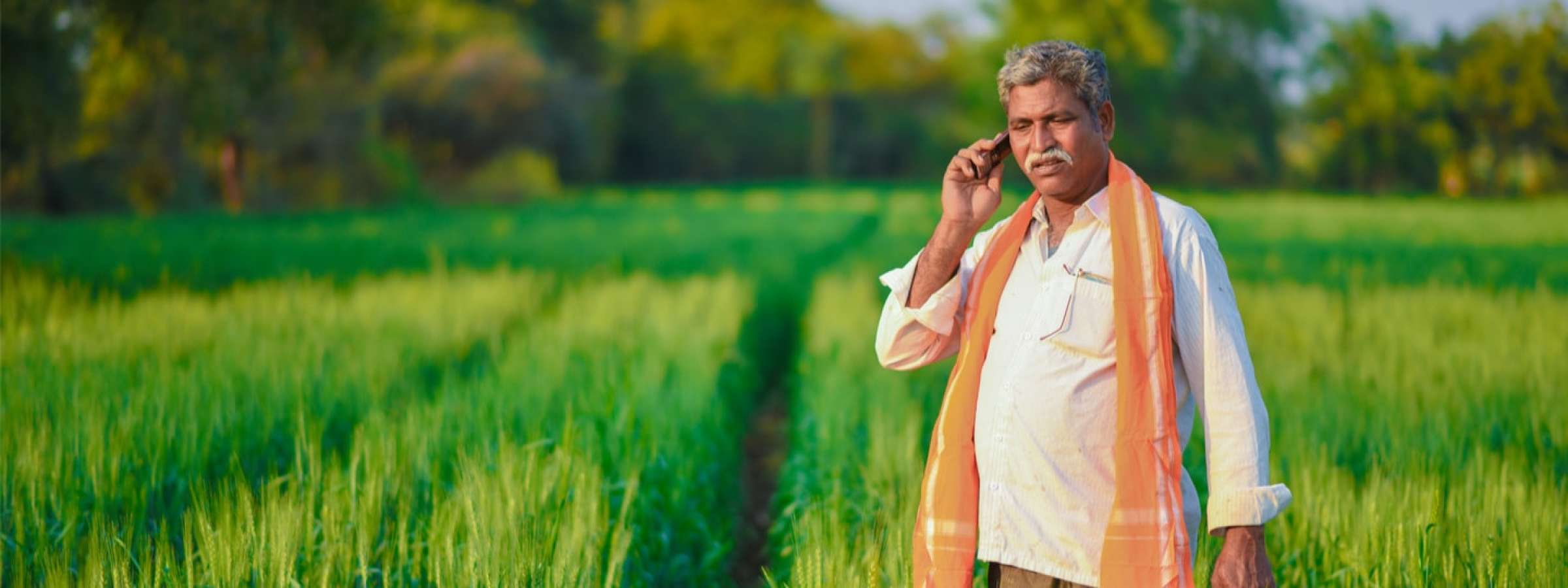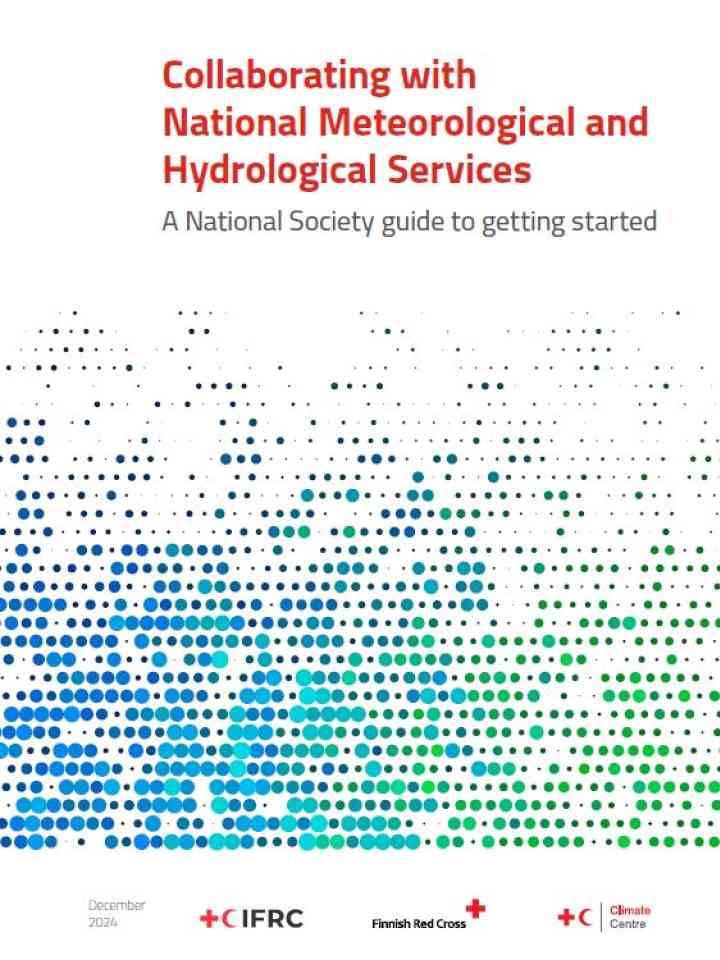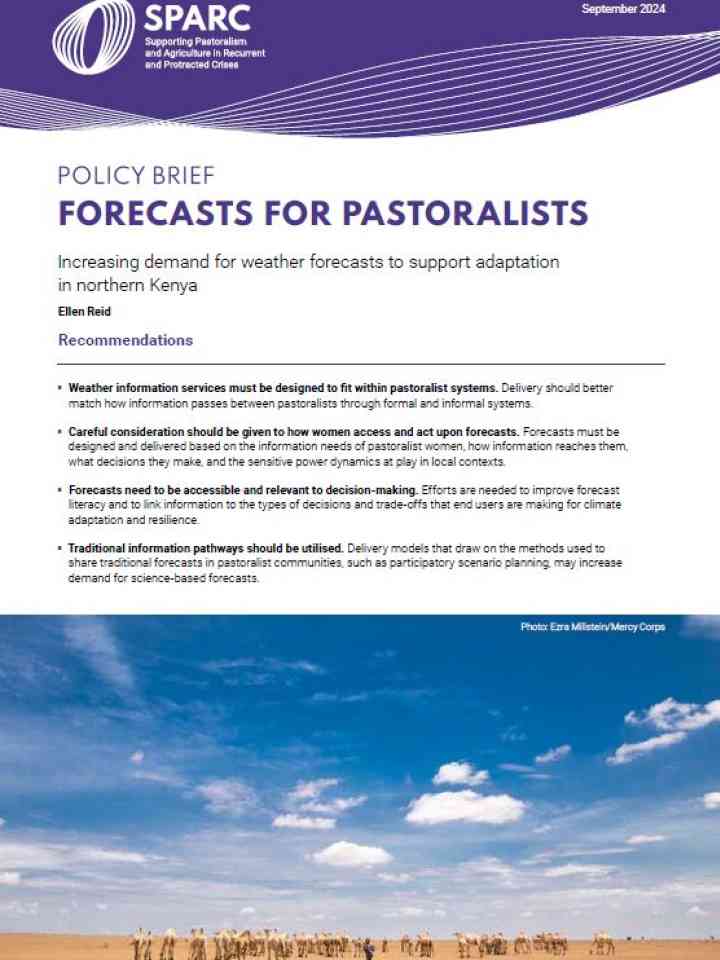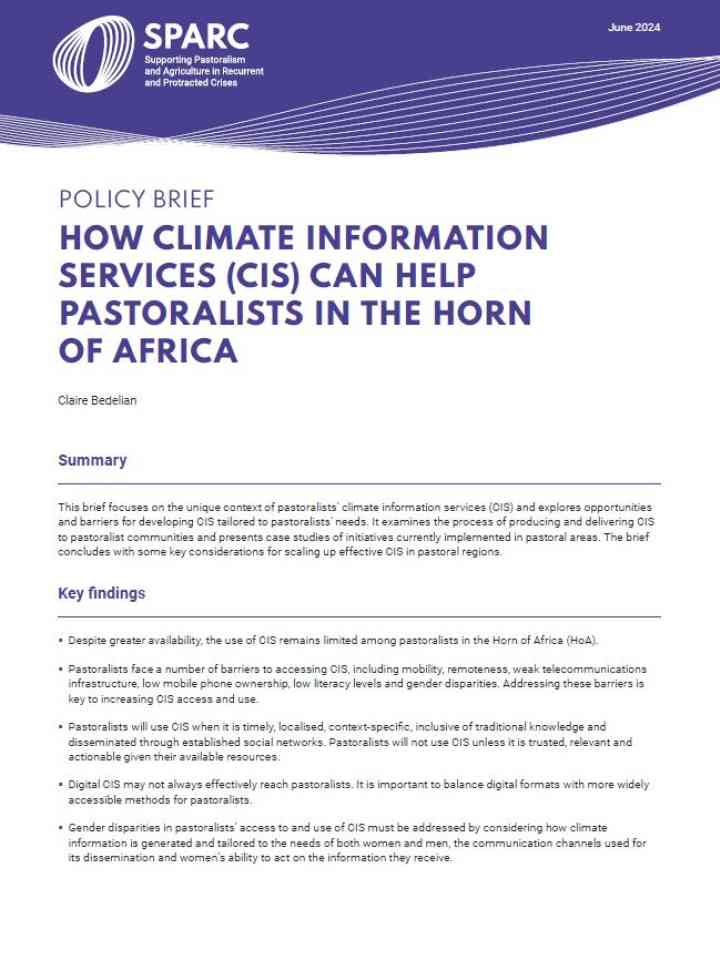Climate services for disaster risk reduction
Image

Introduction
These resources explore climate services can contribute to effective risk management systems and resilience building initiatives.
This video shows how comprehensive risk management approaches use different timescales to provide the most accurate climate information. This information helps provide early warnings and suggests actions to reduce risks.
Themes






